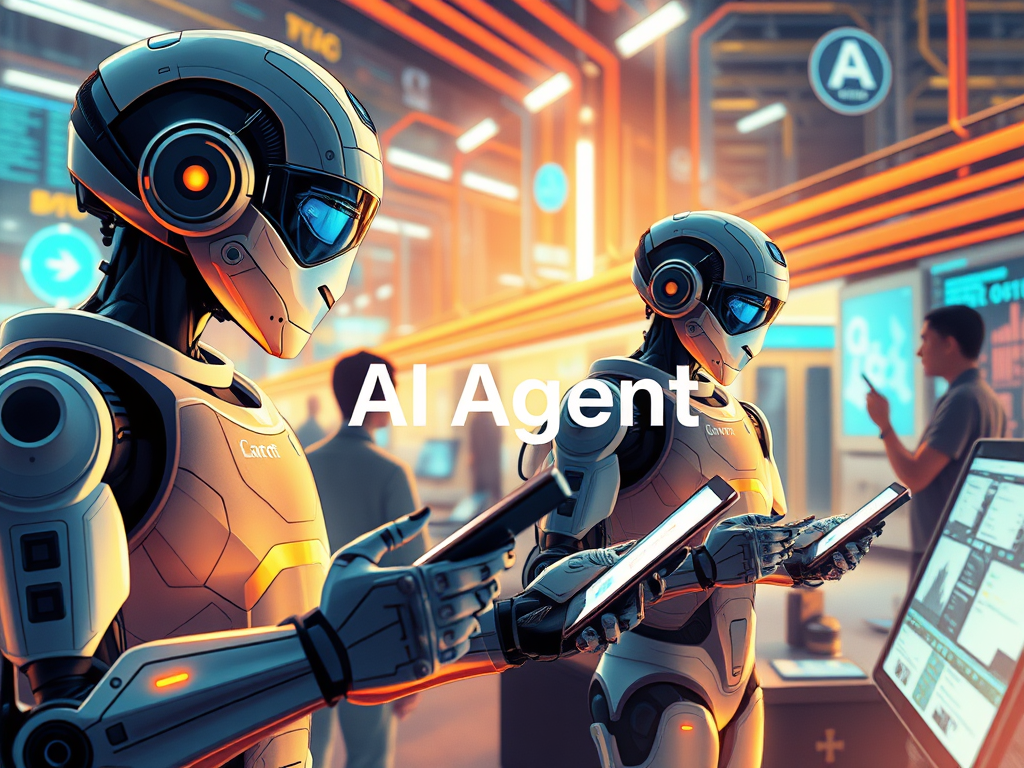As we approach 2025, the landscape of artificial intelligence (AI) is poised for a significant transformation, particularly with the emergence of AI agents. This new class of AI technology is set to redefine how we interact with machines, moving beyond the limitations of traditional chatbots to create more autonomous and efficient systems. Google CEO Sundar Pichai has referred to this shift as the “agentic era,” marking a pivotal moment in AI development.
Understanding AI Agents
AI agents can be understood as an evolution of chatbots, designed to perform complex tasks with minimal user intervention. Unlike chatbots, which typically require continuous input and are reactive in nature, AI agents are proactive. They can execute multi-step workflows autonomously once given initial instructions. This capability allows them to handle tasks that range from scheduling appointments to managing entire projects without needing constant oversight.
For instance, early demonstrations from companies like Google and Microsoft have showcased AI agents creating detailed travel itineraries, syncing them with calendars, and even organizing data into spreadsheets. These functionalities highlight the autonomy and efficiency that AI agents bring to the table, making them a valuable asset in both personal and professional contexts.
The Advantages of AI Agents
The shift towards AI agents offers numerous benefits that are expected to dominate in 2025:
- Increased Efficiency: AI agents streamline processes by automating tasks that would typically require human intervention. This not only saves time but also reduces operational costs for businesses. For example, an AI agent can gather information from multiple sources, synthesize it, and present it in a usable format much faster than a human could.
- Empowerment for Non-Experts: With their advanced capabilities, AI agents enable users without technical expertise to achieve results that would typically require specialist knowledge. For instance, a non-technical user could generate professional-quality marketing content or develop software applications with the help of an AI agent.
- Enhanced Decision-Making: By quickly analyzing vast amounts of data and providing actionable insights, AI agents can significantly enhance decision-making processes. This capability is particularly valuable in fields such as finance and healthcare, where timely and accurate information is crucial.
- Scalability: As businesses grow, the need for scalable solutions becomes paramount. AI agents can manage increasing workloads without the need for proportional increases in human resources, allowing companies to scale operations efficiently.
The Future Landscape
As we move into 2025, the adoption of AI agents is expected to accelerate across various industries. Companies like Salesforce and Microsoft are already investing heavily in developing these technologies, with tools like Salesforce’s Agentforce enabling businesses to create custom AI agents tailored to their specific needs.
Moreover, the potential applications for AI agents are vast and varied. From customer service automation to complex project management and even creative tasks like video production, the versatility of these agents will likely lead to innovative use cases that have yet to be imagined.
However, this rapid advancement also raises important considerations regarding ethics and governance. As AI agents become more autonomous, ensuring they operate within ethical guidelines and do not inadvertently cause harm will be critical. Organizations will need to establish frameworks for accountability and oversight as they integrate these technologies into their operations.
Conclusion
The rise of AI agents represents a significant leap forward in artificial intelligence technology. By transforming how tasks are performed—from simple inquiries to complex workflows—AI agents are set to enhance productivity and efficiency across various sectors in 2025. As organizations begin to harness the full potential of these autonomous systems, we can expect a new era of innovation that empowers individuals and businesses alike while also posing new challenges that must be addressed responsibly. The agentic era is upon us, promising a future where AI not only assists but actively participates in our daily lives and work processes.


Leave a Reply